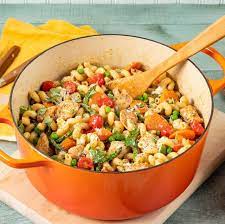The Ultimate Guide to Meal Planning - Meal Plan Formats
Meal Plan Formats - Ultimate Guide to Meal Planning. The Ultimate Guide to Meal Planning - Meal Plan Formats. It allows you to: Save time, save money. Read also about Zobo Sorrel Drink - Recipe and Health Benefits.
 |
| Photo by Yente Van Eynde on Unsplash |
Meal planning is a powerful tool for maintaining a healthy diet and saving time and money. Whether you're trying to lose weight, eat more nutritious foods, or simply avoid the stress of daily meal decisions, meal planning can help. In this ultimate guide, we'll cover everything you need to know to start meal planning today. First, it's important to understand the benefits of meal planning. Meal planning allows you to:
- Save time:
When you plan your meals in advance, you can make sure to have all the ingredients you need on hand, which means less time spent running to the store or deciding what to make.
- Save money:
Meal planning can help you avoid buying unnecessary or impulse items at the store, which can save you money in the long run.
- Control your portions:
When you plan your meals, you can make sure that you're getting the right amount of food for your goals.
- Stay on track with your diet:
Meal planning allows you to make sure that you're eating the right foods to meet your dietary needs and goals. Now that you understand the benefits of meal planning, let's dive into how to do it. The first step is to decide on your meal plan format. There are a few different ways to meal plan, including:
- Weekly meal planning:
This involves planning out all of your meals for the week in advance. This can be a good option for people who want to stick to a strict schedule or for those who want to make sure they have all the ingredients they need for the week.
- Monthly meal planning:
This involves planning out all of your meals for the month in advance. This can be a good option for people who want to save even more time and money by buying ingredients in bulk.
- Flexible meal planning:
This involves planning out your meals in advance, but not necessarily for a specific period of time. This can be a good option for people who prefer more flexibility in their meal planning. Once you've decided on your meal plan format, it's time to start planning your meals. When planning your meals, it's important to consider a few key things:
- Nutritional balance:
Make sure that you're getting a balance of protein, carbohydrates, and healthy fats in each meal.
- Food preferences:
Consider your personal preferences and try to include foods that you enjoy.
- Meal timing:
Consider when you'll be eating each meal and plan accordingly.
- Food allergies or sensitivities:
Make sure to include safe foods and ingredients for any allergies or sensitivities you may have. After you've planned your meals, it's time to start prepping. Meal prepping refers to the practice of preparing and cooking your meals in advance so that you can easily grab and go when it's time to eat. Meal prepping can save you a lot of time and make it easier to stick to your meal plan. It's important to be flexible and remember that meal planning is not an exact science. Sometimes things come up and you need to make changes to your plan. The important thing is to not get discouraged. Just take it as an opportunity to learn and make adjustments for next time. Again, meal planning is a powerful tool for maintaining a healthy diet, saving time and money, and avoiding stress. With a little bit of planning and preparation, anyone can start meal planning today. SEE 5 Simple and Delicious Weeknight Meals.
By considering the key factors such as nutritional balance, food preferences, meal timing and food allergies, you can ensure your meal plan is tailored to your needs. Remember to be flexible and don't get discouraged, and you'll be well on your way to a successful meal planning experience.
Why do people consider meal timing in meal plan format?
Meal timing is an important consideration in meal planning because it can affect your energy levels and metabolism throughout the day. Eating at the right times can help ensure that you have enough energy to get through your day, while eating at the wrong times can lead to fatigue and lack of concentration. Eating at regular intervals, such as every 3-4 hours, can help to regulate your blood sugar levels and prevent overeating. It is also important to eat your largest meal of the day earlier in the day, as it will provide you with the energy you need to get through your day and your metabolism slows down at night so that you are less likely to store fat. Additionally, when planning a workout schedule, meal timing is important to optimize performance and recovery. Eating a meal with a balance of carbohydrates and protein before a workout can provide energy and help repair muscle damage. Eating a meal with protein and carbohydrates within 30 minutes after a workout can help to replenish glycogen stores and support muscle repair. Also, meal timing is an important aspect of meal planning as it can affect energy levels, metabolism, blood sugar regulation, and workout performance and recovery. It is important to plan your meals accordingly and consider when you will be eating each meal to optimize the benefits of meal planning.
Among the 3 meal plans formats which is the best?
The best meal plan format for you will depend on your personal preferences and lifestyle. Here is a brief overview of the pros and cons of each format:
- Weekly meal planning: Pros:
This format can be a good option for people who want to stick to a strict schedule or for those who want to make sure they have all the ingredients they need for the week. Cons: it can be time consuming to plan all the meals for the week.
- Monthly meal planning: Pros:
This format can save even more time and money by buying ingredients in bulk. Cons: It may be difficult to plan a month's worth of meals and there is a risk of getting bored of eating the same meals.
- Flexible meal planning: Pros:
This format allows for more flexibility in meal planning, which can be a good option for people who prefer more spontaneity in their meal planning. Cons: It may be harder to stick to a budget or dietary goals if you don't have a set plan. Ultimately, the best meal plan format for you will depend on your personal preferences, lifestyle and goals. Each format has its own pros and cons, so it's important to find one that works best for you. You can try different formats and see which one you find most beneficial, and adjust as needed.













